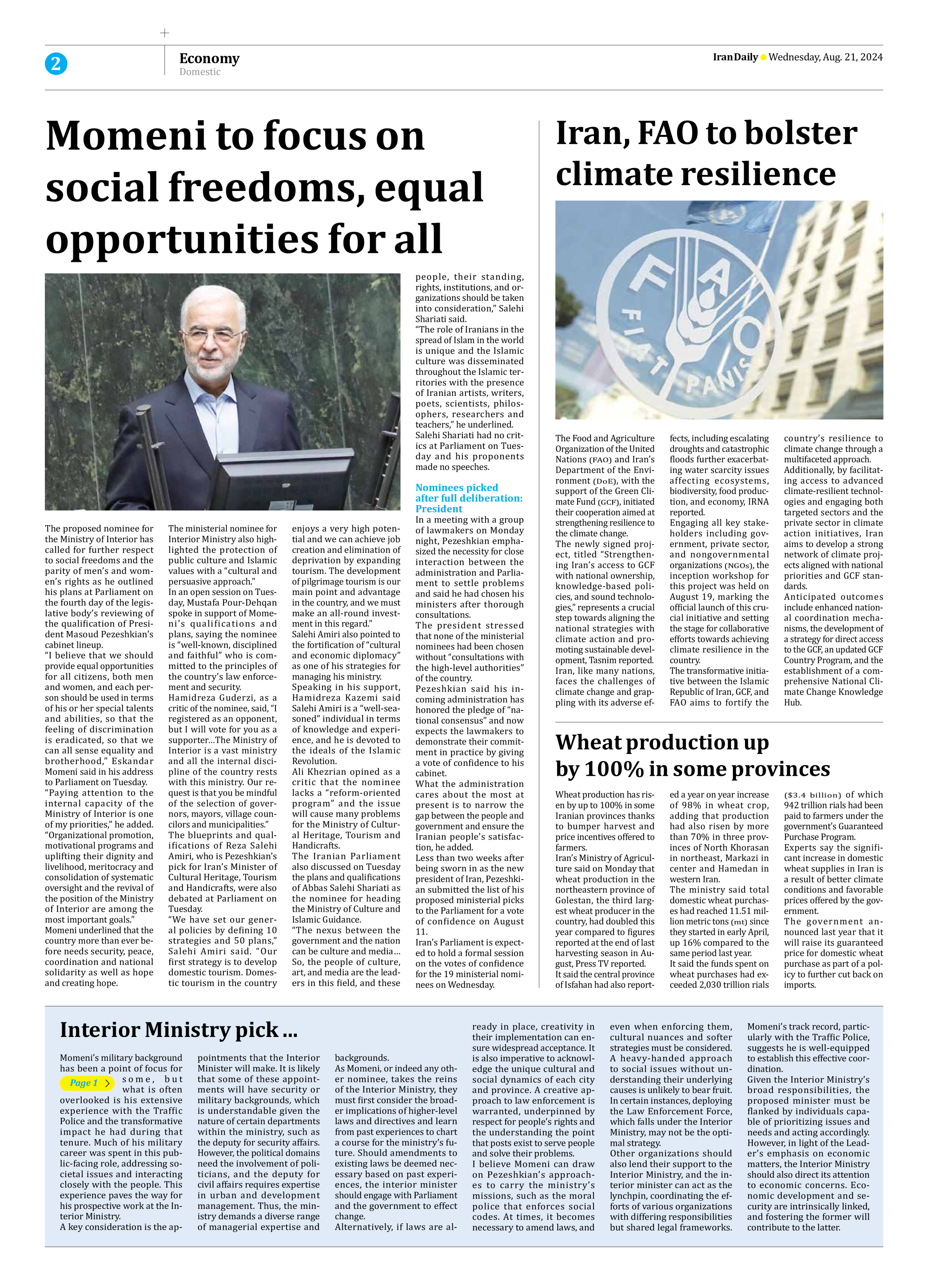
Copy in clipboard...
Iran, FAO to bolster climate resilience
The newly signed project, titled “Strengthening Iran’s access to GCF with national ownership, knowledge-based policies, and sound technologies,” represents a crucial step towards aligning the national strategies with climate action and promoting sustainable development, Tasnim reported.
Iran, like many nations, faces the challenges of climate change and grappling with its adverse effects, including escalating droughts and catastrophic floods further exacerbating water scarcity issues affecting ecosystems, biodiversity, food production, and economy, IRNA reported.
Engaging all key stakeholders including government, private sector, and nongovernmental organizations (NGOs), the inception workshop for this project was held on August 19, marking the official launch of this crucial initiative and setting the stage for collaborative efforts towards achieving climate resilience in the country.
The transformative initiative between the Islamic Republic of Iran, GCF, and FAO aims to fortify the country’s resilience to climate change through a multifaceted approach.
Additionally, by facilitating access to advanced climate-resilient technologies and engaging both targeted sectors and the private sector in climate action initiatives, Iran aims to develop a strong network of climate projects aligned with national priorities and GCF standards.
Anticipated outcomes include enhanced national coordination mechanisms, the development of a strategy for direct access to the GCF, an updated GCF Country Program, and the establishment of a comprehensive National Climate Change Knowledge Hub.







